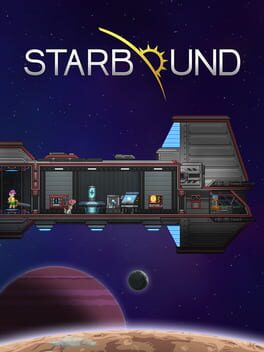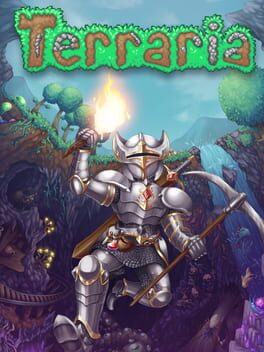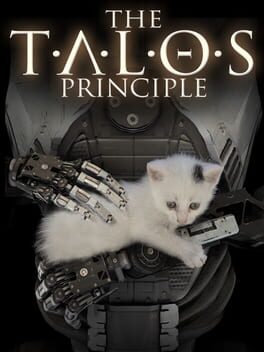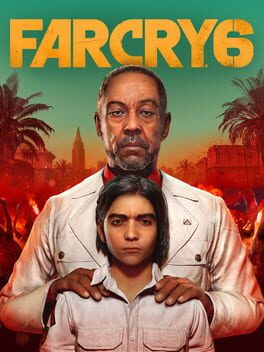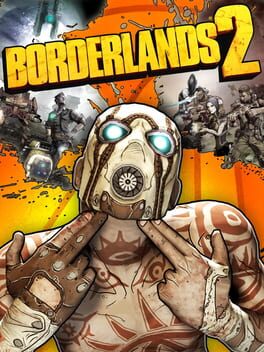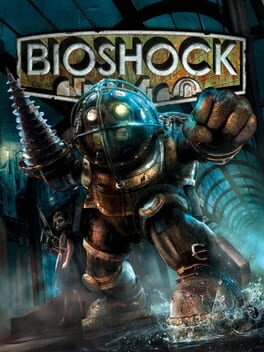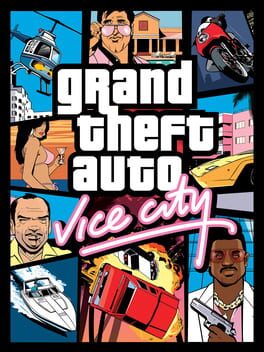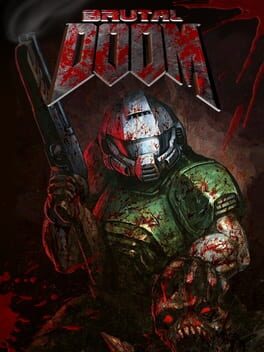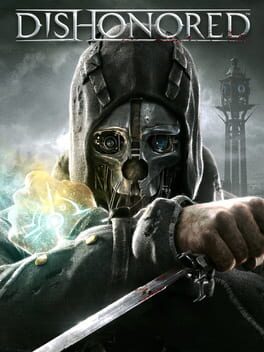dagothkronk
2016
Starbound is what happens when a company full of people who have no qualms about exploiting the labor of minors sees Terraria and says "Let's make one of those." Once, I quite liked this game - but the honeymoon period is long over, and in its wake is disappointment and regret.
There are few games as shallow and tedious as Starbound. It carries the same cocktail of heady ambition and creative bankruptcy as Skyrim, and like Skyrim it exists as a hollowed-out shell for modders to make a better game out of. Visit homogeneous randomly-generated planets, collect worthless currency hand over fist, open chests full of terrible weapons, scan objects, do a forgettable mission, repeat the whole routine a few times, and you've beaten the game. The story is threadbare (another unflattering Skyrim parallel) and the gameplay is just not very fun or deep. Eat to keep your hunger meter full! Better dig up the new ore to craft the latest armor that magically makes your character stronger! What do you mean, you've "already played this game?"
I can't be too hard on Starbound, though. I mean, it just wouldn't be fair, a lot of it was made by teenagers - for free, no less!
There are few games as shallow and tedious as Starbound. It carries the same cocktail of heady ambition and creative bankruptcy as Skyrim, and like Skyrim it exists as a hollowed-out shell for modders to make a better game out of. Visit homogeneous randomly-generated planets, collect worthless currency hand over fist, open chests full of terrible weapons, scan objects, do a forgettable mission, repeat the whole routine a few times, and you've beaten the game. The story is threadbare (another unflattering Skyrim parallel) and the gameplay is just not very fun or deep. Eat to keep your hunger meter full! Better dig up the new ore to craft the latest armor that magically makes your character stronger! What do you mean, you've "already played this game?"
I can't be too hard on Starbound, though. I mean, it just wouldn't be fair, a lot of it was made by teenagers - for free, no less!
2011
Terraria is monolithic. There are no games like Terraria, and there will never be another game like it. The game is not perfect, but its execution is so solid and its mechanics so deep that it's no wonder people put so much time into it. RPG and building mechanics are enmeshed in such a way that there is a deeply satisfying feeling of control. The game's pace unfolds at the pace you allow, and so, as your tiny wood hut metamorphoses into a base, and your base into a town, and NPC's come to inhabit your homes, there is always a feeling of verisimilitude, like the part of the world you play in is part of something greater.
The constant comparisons between this game and Minecraft sell both games a little short - but just between you and me, Terraria is better.
The constant comparisons between this game and Minecraft sell both games a little short - but just between you and me, Terraria is better.
2014
This one, I dismissed for years. In a serendipitous way, this may not have been a mistake. Its existentialist themes landed at a time in my life where I may have found them especially poignant. Talos is an incredible puzzle game, whose rooms ask thinking more lateral than Portal 2's hardest test chambers while never becoming completely opaque. Coming back to a puzzle that stumped me after putting the game down for a time and knocking it out right away was legitimately enriching, and the breadth and depth of the games mechanics lead to the best "Ah hah!" moments in recent memory. I am hard pressed to find many flaws. It's good. Go play it.
2021
In reviewing this game I am put in a complicated position. On one hand, it is extremely easy to fall back on the low-hanging critiques that a million others have said: "It's the same game again," "it's too long," "it's another open world game," etc... Or, to pan the game by dint of the fact that it's a Ubisoft game, which is a correct reaction in my opinion.
The problem for me is that I kind of loved it.
Make no mistake, it's not "favorites" material, and in a lot of ways it follows the AAA tradition of pushing out grossly inflated games with serious pacing issues, and has the self-consciousness of many open-world games that are so anxious to direct players towards Content that the open world becomes a checklist: there is no exploration, there is heading to the next map marker. But to be honest I found it an improvement over previous games in many ways. There's clear artistic intent here, struggling to express itself through Ubisoft's famously terrible company culture, and if anything it makes me yearn for the version of this game made in an alternate universe by a bunch of Peruvian university students.
Some say the story is "bad," and while I do fall back on polemic and a little bit of ribaldry here, I do have the sense to measure that instinct with regards to people who disagree with me. That said, this view baffles me because while the story is nothing special it is quite literally miles above the standards of the series. The side characters are highly memorable (and there is no Hurk), the villain is more realistic and credible than Joseph Jesus or campy Pagan Min or widely beloved crank Vaas (and the other villain from 3 whom everyone forgets because he sucked.) I would even go so far as to say the story is kind of good. Maybe it's my current state of mind, but there's a kind of tragedy to the proceedings, a vibe of "doesn't it kind of suck that the world can be like this?" The fictional country of Yara is trapped in a cycle of violence and revolution, and killing the evil dictator and his cronies won't fix it. Compare series sacred cow Far Cry 3, which has more of an exploitation/action film vibe, and is wholly uninterested in any kind of complexity. Is that a bad thing? Not intrinsically. But Far Cry 6's portrayal of political, institutional, and international violence and privation, while far from radical, feels almost ballsy at times. This is what I meant when I said that thing about the Peruvian university students - this game feels like if Disco Elysium was a Bethesda joint, which given developments with ZA\UM may well become reality.
Do I recommend it? No. Am I just playing devil's advocate? Maybe somewhat. But I will say this: I didn't completely regret playing this one. For a Ubisoft game, that's practically an A+.
The problem for me is that I kind of loved it.
Make no mistake, it's not "favorites" material, and in a lot of ways it follows the AAA tradition of pushing out grossly inflated games with serious pacing issues, and has the self-consciousness of many open-world games that are so anxious to direct players towards Content that the open world becomes a checklist: there is no exploration, there is heading to the next map marker. But to be honest I found it an improvement over previous games in many ways. There's clear artistic intent here, struggling to express itself through Ubisoft's famously terrible company culture, and if anything it makes me yearn for the version of this game made in an alternate universe by a bunch of Peruvian university students.
Some say the story is "bad," and while I do fall back on polemic and a little bit of ribaldry here, I do have the sense to measure that instinct with regards to people who disagree with me. That said, this view baffles me because while the story is nothing special it is quite literally miles above the standards of the series. The side characters are highly memorable (and there is no Hurk), the villain is more realistic and credible than Joseph Jesus or campy Pagan Min or widely beloved crank Vaas (and the other villain from 3 whom everyone forgets because he sucked.) I would even go so far as to say the story is kind of good. Maybe it's my current state of mind, but there's a kind of tragedy to the proceedings, a vibe of "doesn't it kind of suck that the world can be like this?" The fictional country of Yara is trapped in a cycle of violence and revolution, and killing the evil dictator and his cronies won't fix it. Compare series sacred cow Far Cry 3, which has more of an exploitation/action film vibe, and is wholly uninterested in any kind of complexity. Is that a bad thing? Not intrinsically. But Far Cry 6's portrayal of political, institutional, and international violence and privation, while far from radical, feels almost ballsy at times. This is what I meant when I said that thing about the Peruvian university students - this game feels like if Disco Elysium was a Bethesda joint, which given developments with ZA\UM may well become reality.
Do I recommend it? No. Am I just playing devil's advocate? Maybe somewhat. But I will say this: I didn't completely regret playing this one. For a Ubisoft game, that's practically an A+.
What a fucking game.
Sekiro burrows into the folds of your brain when it sticks. After finishing it, I put it down for months, and when I picked it up again... it's like riding a bike. There is no re-learning. Genichiro kicked my ass up and down the block when I first played through the game. On my second playthrough, months later, I beat him on the first try.
Sekiro suffers from constant comparisons to the Souls games, but they are so radically different from each other that such a comparison sells the game a little short. Dark Souls is about using a variety of tools, caution, and strategy, and only using reflexes as a last resort when all else fails, which Elden Ring doubles down on. Sekiro is about flow states. I wouldn't be the first to compare it to a rhythm game as it were, though this too would be missing the full picture. There is strategy, and even some lateral thinking in encounters, the interplay between memorizing enemy attacks, using stealth and underhanded shinobi tools, converge into an extremely consistent game. Sekiro invokes a feeling of earned mastery like few other games, and it stands as another reminder that when people extol the virtues of From's games, it isn't hyperbole or pretension. It's just that good.
Sekiro burrows into the folds of your brain when it sticks. After finishing it, I put it down for months, and when I picked it up again... it's like riding a bike. There is no re-learning. Genichiro kicked my ass up and down the block when I first played through the game. On my second playthrough, months later, I beat him on the first try.
Sekiro suffers from constant comparisons to the Souls games, but they are so radically different from each other that such a comparison sells the game a little short. Dark Souls is about using a variety of tools, caution, and strategy, and only using reflexes as a last resort when all else fails, which Elden Ring doubles down on. Sekiro is about flow states. I wouldn't be the first to compare it to a rhythm game as it were, though this too would be missing the full picture. There is strategy, and even some lateral thinking in encounters, the interplay between memorizing enemy attacks, using stealth and underhanded shinobi tools, converge into an extremely consistent game. Sekiro invokes a feeling of earned mastery like few other games, and it stands as another reminder that when people extol the virtues of From's games, it isn't hyperbole or pretension. It's just that good.
2012
When people ask me, "what's your favorite game?" I will usually rattle off a list, because I hate picking favorites. Different games do different things well, and I'm the kind of person who can't play the same game for too terribly long. Even so, I wouldn't think to list Borderlands 2 as a favorite - but the hours don't lie. I've played this game all the way through multiple times, and even revisiting it recently feels... fun. It's a nice game. Lightning in a bottle, even. After 1's kind of raw crusty low-budget feel, but before 3 (a game that I maintain to this day was not all that bad and whose gameplay is an improvement over 2 in some ways), this game is kind of a tentpole. Sure, there are problems, the game's randomly generated guns lead to situations where theoretically good weapons are hamstrung by some statistical quirk or by being a Torgue weapon, but there's something oddly unassailable about the game to me. The story is nothing special, though it is so competent and memorable for the low standards of video games that everyone's jaw seemed to drop anyway. I can't say whether the game has made me feel something strongly or question myself, or challenged me in an especially unique way, but even after all these years I sometimes come back here, get hooked back in, and despite the trashy reputation of the game, and Gearbox, it's something that few games can be for me: weirdly, "home." And I will live with that.
Also the humor is not as cringy as everyone says it is lol
Also the humor is not as cringy as everyone says it is lol
2007
The art direction in BioShock is incredible. The setting of Rapture, the fallen anarcho-capitalist paradise whose ruins we trawl and scavenge through in a desperate fight for survival, is instantly gorgeous, recognizable, and distinct. This is good, because BioShock is in all other respects stale and unremarkable. Everything BioShock does has been done better before and since, including by some of the very people who worked on it.
A good word for BioShock might be "insecure." The story is, and this is not an exaggeration, almost a beat-for-beat remake of System Shock 2, a game written by the one and the same Ken Levine who masterminded this series. This self-plagiarism invites obvious and unkind comparisons between the two games: when System Shock 2 featured rooms that re-spawned the player on death, it felt like a strange mistake that undercut the survival horror atmosphere; when the mechanic returns in BioShock, a painful realization sets in. On the other hand, System Shock 2 features in-depth (albeit deeply flawed) RPG mechanics, ensuring that player characters can be a little different each time; this system is omitted entirely in BioShock, leaving only a system where players can choose from an array of mostly situational powers to use in combat. BioShock, seemingly fearful of innovating, simply copies many mechanics and ideas from its predecessor while carving out many of the traits that made it memorable: non-linearity, inventory management, emphasis on player choice; and as a result, BioShock feels like an inferior and pared-down version of System Shock 2 rather than its own game. System Shock 2 was not a perfect game, but the shamelessness with which BioShock copies down its most identifiable traits speaks volumes.
The combat is praised ad nauseum, which is baffling because it's not fun or interesting in the slightest. Certain abilities - called "Plasmids" in this game - pull ahead in utility very quickly compared to other options. Electro Bolt and Hypnotize are prime offenders in this respect, being far and away more useful in many cases than lighting one idiot on fire for barely any damage or throwing bugs at them. The game seems to only become easier the more you play it, with powers and weapons only accelerating in effectiveness while enemies only get more hapless and fragile. Fighting Big Daddies is the same every time you do it, only going down quicker with each one, until the the only thing you're "surviving" in this survival horror game is your own encroaching boredom. I've seen people praise the combat for opening up "interesting ways" of defeating enemies, but the truth is that dominant strategies emerge very easily, which combined with the game's literally backwards difficulty curve creates an experience that only gets more stale on repeat playthroughs. On revisiting this game I only find myself annoyed by how little choice actually exists for the player, especially when the player concentrates on playing optimally - a mode that most survival horror games encourage implicitly.
When the unoriginal and boring aspects are removed, BioShock is left only with its unique and well-done aesthetic. It's a pity this game weren't an art book or a painting, because if it were it would rate five stars.
A good word for BioShock might be "insecure." The story is, and this is not an exaggeration, almost a beat-for-beat remake of System Shock 2, a game written by the one and the same Ken Levine who masterminded this series. This self-plagiarism invites obvious and unkind comparisons between the two games: when System Shock 2 featured rooms that re-spawned the player on death, it felt like a strange mistake that undercut the survival horror atmosphere; when the mechanic returns in BioShock, a painful realization sets in. On the other hand, System Shock 2 features in-depth (albeit deeply flawed) RPG mechanics, ensuring that player characters can be a little different each time; this system is omitted entirely in BioShock, leaving only a system where players can choose from an array of mostly situational powers to use in combat. BioShock, seemingly fearful of innovating, simply copies many mechanics and ideas from its predecessor while carving out many of the traits that made it memorable: non-linearity, inventory management, emphasis on player choice; and as a result, BioShock feels like an inferior and pared-down version of System Shock 2 rather than its own game. System Shock 2 was not a perfect game, but the shamelessness with which BioShock copies down its most identifiable traits speaks volumes.
The combat is praised ad nauseum, which is baffling because it's not fun or interesting in the slightest. Certain abilities - called "Plasmids" in this game - pull ahead in utility very quickly compared to other options. Electro Bolt and Hypnotize are prime offenders in this respect, being far and away more useful in many cases than lighting one idiot on fire for barely any damage or throwing bugs at them. The game seems to only become easier the more you play it, with powers and weapons only accelerating in effectiveness while enemies only get more hapless and fragile. Fighting Big Daddies is the same every time you do it, only going down quicker with each one, until the the only thing you're "surviving" in this survival horror game is your own encroaching boredom. I've seen people praise the combat for opening up "interesting ways" of defeating enemies, but the truth is that dominant strategies emerge very easily, which combined with the game's literally backwards difficulty curve creates an experience that only gets more stale on repeat playthroughs. On revisiting this game I only find myself annoyed by how little choice actually exists for the player, especially when the player concentrates on playing optimally - a mode that most survival horror games encourage implicitly.
When the unoriginal and boring aspects are removed, BioShock is left only with its unique and well-done aesthetic. It's a pity this game weren't an art book or a painting, because if it were it would rate five stars.
Grand Theft Auto has left a dubious legacy on the industry - not for its violence or raunchy sexual humor, but for the fact that Vice City, the middle sibling between the half-finished III and the bloated ambition of San Andreas, is the high that the industry at large, let alone Rockstar themselves, have struggled to chase ever since. Vice City is the platonic ideal of the open-world crime simulator, a game that captured the imaginations of gamers, commentators, and the politicians who sought a scapegoat for the United State's unanswered epidemic of shooting deaths. Political extremism and gun culture were passed over in favor of pointing fingers at the media in general, a wave of moral panic that has in many ways irreparably damaged public discourse going forward.
By modern standards Vice City is nothing special, but to judge it by those standards is a reverse anachronism. Sitting down and becoming immersed in the visually primitive experience reveals an atmosphere of longing familiarity. It's fitting that a game with such nostalgic value for those in my generational cohort is itself a period piece set in the 80's, a decade of national optimism for some, where Vietnam was a distant memory and Afghanistan was the Soviet's problem. Where "trickle-down" might have felt like a promising paradigm shift, where the road we were going down must have looked a little longer from all the way back there. This isn't to say that Vice City is a secret masterpiece or has some hidden meaning under its Hollywood-inspired glitz and kitsch - but the meaning that is there is strangely enhanced by its datedness. It is by no means timeless: controls are clunky, graphics are bad even by standards of the time, a necessary concession to cram the detailed titular Vice City onto the day's hardware; but these traits in their way have become aesthetically valuable, the way scanlines and the roughness of tapes have come to be associated with warmth and better times. Low-poly characters stumble through mocapped cutscenes, shadows are hard-baked into geometry, and a slightly compressed halo of sun flickers at sunset.
Vice City is ugly and crude, sometimes even a little bigoted, but it's also strangely beautiful. I can't recommend it, but I will give it four stars, if only for posterity.
By modern standards Vice City is nothing special, but to judge it by those standards is a reverse anachronism. Sitting down and becoming immersed in the visually primitive experience reveals an atmosphere of longing familiarity. It's fitting that a game with such nostalgic value for those in my generational cohort is itself a period piece set in the 80's, a decade of national optimism for some, where Vietnam was a distant memory and Afghanistan was the Soviet's problem. Where "trickle-down" might have felt like a promising paradigm shift, where the road we were going down must have looked a little longer from all the way back there. This isn't to say that Vice City is a secret masterpiece or has some hidden meaning under its Hollywood-inspired glitz and kitsch - but the meaning that is there is strangely enhanced by its datedness. It is by no means timeless: controls are clunky, graphics are bad even by standards of the time, a necessary concession to cram the detailed titular Vice City onto the day's hardware; but these traits in their way have become aesthetically valuable, the way scanlines and the roughness of tapes have come to be associated with warmth and better times. Low-poly characters stumble through mocapped cutscenes, shadows are hard-baked into geometry, and a slightly compressed halo of sun flickers at sunset.
Vice City is ugly and crude, sometimes even a little bigoted, but it's also strangely beautiful. I can't recommend it, but I will give it four stars, if only for posterity.
2019
Control is a delightful shooter that pays tribute to urban supernatural mystery and conspiracy stories like X-Files and SCP Foundation, and which riffs on an open-world formula by taking place entirely in the twisting confines of the Oldest House, a spatial anomaly turned government headquarters for the Federal Bureau of Control. Control knows what it wants to be, and while it may take notes from other works, there is nothing that quite matches its energy. All this coalesces into an engrossing and unique experience that is marred by difficulty spikes, emotionally nebulous stakes, and poor performance on 8th generation consoles.
The truth is, while the game's overall story isn't outright bad, it does seem to take a backseat to the worldbuilding and exploration aspects - an unusual problem for a game of such narrow scale compared to the ubiquitous wide-open sandboxes of recent years. The game follows Jesse Faden, who seeks out the FBC to find her missing brother, only for the organization to seemingly subsume her as she assumes the mantle of Director and is subsequently pushed into conflict with an invading hostile force called the Hiss. But while the game's central mystery is important and well done, it becomes clear exactly how much work and expense was put into background supplemental material, as the player stumbles on documents scattered throughout the Oldest House, ranging from frenzied letters sent by paranormal believers, to in-depth partially redacted write-ups of anomalous objects. Some of these objects even relate to the player, in that Jesse earns new abilities by neutralizing "Objects of Power." The effect of this, however unintentionally, was that plumbing the depths of the game's extensive background reading and many branching paths became much more engrossing than the unfolding central story as the game progressed - especially as the Hiss is disappointingly revealed to be a nebulous doomsday threat. By comparison, the fridge that eats people when they're not looking at it and the traffic light that only lets you move when its green are just plain more interesting.
While narratively the Hiss are lacking, in gameplay terms engaging them in combat reveals one of the most well-oiled machines that Remedy has ever constructed. The Service Weapon, a shapeshifting gun, has a variety of weapon forms that can be equipped and upgraded, each serving a different niche, none feeling redundant - supplemented by powers, which, while not as diverse in appearance or effect as in BioShock or Dishonored, are still powerful, satisfying, and, most importantly, useful. A telekinetic throw move can hurl objects, and even rip chunks out of the floor and walls, or nab weakened enemies off their feet to be used as fodder against their comrades. Another ability sees Jesse raise a wall of rubble into the air as an impromptu shield. Plenty of third person action games have incorporated supernatural powers, but Control is so intentional and pared down with the scope of the abilities at the player's disposal that I never found myself wanting for more.
This belies an unforgiving difficulty curve that, while ameliorated by the kind of difficulty adjustment options now standard in the industry, still feels strange and jarring. Enemies do a lot of damage and drop health when they're defeated, sometimes in quite stingy amounts. At best, this results in a fun tension where mistakes are punished but the player can pull ahead in a tough situation. At worst, a fight can deteriorate into a river-dance of attrition as you struggle to stay alive and make moves until your inevitable death. Despite this flaw, the combat is clearly one of the main attractions, and thanks to robust enemy variety and wealth of options for tackling them, the combat never feels like a chore.
Control is very focused on spectacle, and the art direction reflects this with an emphasis on Escher-esque geometric forms, warped office complexes giving way to abstract non-interiors and vertigo without warning. Graphically speaking, the game looks very good, and a lot of stress is placed on the particle effects, whether it's the bizarre psychic residue that hangs in the air and heralds nearby enemies, or the crumbling cement of the Oldest House torn asunder by bullets and projectiles. Binders and file folders explode into clouds of paper sheets when shot, sparks and dust flies with wild abandon, the game at times looking like a cross between a surrealist painting and a John Woo action film. This is, for some, a double-edged sword, as Control fits neatly into the trend of games that seem to struggle to run optimally on current consoles, a friction between developer intent and affordable hardware that hearkens back to the baleful years of the PlayStation 3, and earlier. The games visuals become slightly less pleasing when the game slows to a crawl during a tense moment, a consequence of ambitious visual character. There seems to even be a small freeze when the "Options" button or touchpad is hit, as the game loads in the relevant menu - strange considering the interface's minimalistic, no-frills design. While this can't be fully blamed on Remedy, stable player experience seems to be becoming a luxury good even on home consoles, which is a troubling development to be sure.
Control defied my expectations, entering my life as a game I assumed I wouldn't care much about, now here to stay, having sauntered its way into my pantheon of favorites with its unique vision and addicting gameplay. A black horse hit if there ever was, and well deserving of its success.
The truth is, while the game's overall story isn't outright bad, it does seem to take a backseat to the worldbuilding and exploration aspects - an unusual problem for a game of such narrow scale compared to the ubiquitous wide-open sandboxes of recent years. The game follows Jesse Faden, who seeks out the FBC to find her missing brother, only for the organization to seemingly subsume her as she assumes the mantle of Director and is subsequently pushed into conflict with an invading hostile force called the Hiss. But while the game's central mystery is important and well done, it becomes clear exactly how much work and expense was put into background supplemental material, as the player stumbles on documents scattered throughout the Oldest House, ranging from frenzied letters sent by paranormal believers, to in-depth partially redacted write-ups of anomalous objects. Some of these objects even relate to the player, in that Jesse earns new abilities by neutralizing "Objects of Power." The effect of this, however unintentionally, was that plumbing the depths of the game's extensive background reading and many branching paths became much more engrossing than the unfolding central story as the game progressed - especially as the Hiss is disappointingly revealed to be a nebulous doomsday threat. By comparison, the fridge that eats people when they're not looking at it and the traffic light that only lets you move when its green are just plain more interesting.
While narratively the Hiss are lacking, in gameplay terms engaging them in combat reveals one of the most well-oiled machines that Remedy has ever constructed. The Service Weapon, a shapeshifting gun, has a variety of weapon forms that can be equipped and upgraded, each serving a different niche, none feeling redundant - supplemented by powers, which, while not as diverse in appearance or effect as in BioShock or Dishonored, are still powerful, satisfying, and, most importantly, useful. A telekinetic throw move can hurl objects, and even rip chunks out of the floor and walls, or nab weakened enemies off their feet to be used as fodder against their comrades. Another ability sees Jesse raise a wall of rubble into the air as an impromptu shield. Plenty of third person action games have incorporated supernatural powers, but Control is so intentional and pared down with the scope of the abilities at the player's disposal that I never found myself wanting for more.
This belies an unforgiving difficulty curve that, while ameliorated by the kind of difficulty adjustment options now standard in the industry, still feels strange and jarring. Enemies do a lot of damage and drop health when they're defeated, sometimes in quite stingy amounts. At best, this results in a fun tension where mistakes are punished but the player can pull ahead in a tough situation. At worst, a fight can deteriorate into a river-dance of attrition as you struggle to stay alive and make moves until your inevitable death. Despite this flaw, the combat is clearly one of the main attractions, and thanks to robust enemy variety and wealth of options for tackling them, the combat never feels like a chore.
Control is very focused on spectacle, and the art direction reflects this with an emphasis on Escher-esque geometric forms, warped office complexes giving way to abstract non-interiors and vertigo without warning. Graphically speaking, the game looks very good, and a lot of stress is placed on the particle effects, whether it's the bizarre psychic residue that hangs in the air and heralds nearby enemies, or the crumbling cement of the Oldest House torn asunder by bullets and projectiles. Binders and file folders explode into clouds of paper sheets when shot, sparks and dust flies with wild abandon, the game at times looking like a cross between a surrealist painting and a John Woo action film. This is, for some, a double-edged sword, as Control fits neatly into the trend of games that seem to struggle to run optimally on current consoles, a friction between developer intent and affordable hardware that hearkens back to the baleful years of the PlayStation 3, and earlier. The games visuals become slightly less pleasing when the game slows to a crawl during a tense moment, a consequence of ambitious visual character. There seems to even be a small freeze when the "Options" button or touchpad is hit, as the game loads in the relevant menu - strange considering the interface's minimalistic, no-frills design. While this can't be fully blamed on Remedy, stable player experience seems to be becoming a luxury good even on home consoles, which is a troubling development to be sure.
Control defied my expectations, entering my life as a game I assumed I wouldn't care much about, now here to stay, having sauntered its way into my pantheon of favorites with its unique vision and addicting gameplay. A black horse hit if there ever was, and well deserving of its success.
2012
Brutal DOOM is preceded by its reputation, but its reputation in turn is preceded by that of its creator, Sergeant Mark IV, a figure so abrasive and - well, the kind term is "politically incorrect," while the unkind (and more truthful) term would be "hateful and belligerent" - that he is banned from two major DOOM forum communities. It's not uncommon to see people pan something but give pity stars for "artistry" or "effort." I reject this practice, out of a refusal to condescend to, coddle, or patronize artists, but also because all the effort in the world would not make Brutal DOOM actually enjoyable to play.
The original DOOM asked "How far can we push personal computers?" Id Software were unsteady explorers, piloting their rickety ship into the choppy and brackish waters of the PC gaming industry of the late 80's. When they finally reached the shores of the 90's, they pitched a tent with Wolfenstein 3D - with DOOM, they founded a settlement, for better and worse, like the pioneers of colonial times. At the risk of overstating Id's importance, it isn't an exaggeration to say that this groundwork shaped much of the games industry as we know it today. Brutal DOOM is the game that asks "What if when you shot a guy his limbs flew off?" Apparently unknowing or uncaring that this is a question that Soldier of Fortune had already answered a decade prior.
It is a shame that of all the creative, intriguing, and fun mods for DOOM over the years, the most popular one is a project as fundamentally uncreative as Brutal DOOM. The tragedy of art is that you will spend days, weeks, months perfecting something, and you'll be lucky if an audience views and remembers it for one hour. In this respect, I find Brutal DOOM the saddest of all, for it's a mod that has been in active development for a decade, yet loses its entire entertainment value in mere minutes. The gameplay loop of DOOM, whether you're exploring the surprisingly still quite atmospheric and easily navigable levels for the first time, or if you're speeding through the game with your eyes closed because you've been playing since '93, is just not materially improved by Brutal DOOM's gore effects, textures, disjointed and poorly balanced gameplay additions, or the button you can push that makes Doomguy say "FUCK yourself!" Sergeant Mark IV's toxicity has rendered him impervious to critique, and so Brutal DOOM, as well as his attempt to monetize his work that he teased at Realm's Deep years ago, is essentially destined for permanent mediocrity, his years of work fated to be nothing more than a curiosity, a footnote in retro FPS history currently being written by more talented, more curious, and more interesting people.
In the end, Sergeant Mark IV's lasting legacy will be the social pariahs who post in DoomWorld forum threads about new mods to ask if they're compatible with Brutal DOOM. I try not to pity him too much, because maybe it's just what he deserves.
The original DOOM asked "How far can we push personal computers?" Id Software were unsteady explorers, piloting their rickety ship into the choppy and brackish waters of the PC gaming industry of the late 80's. When they finally reached the shores of the 90's, they pitched a tent with Wolfenstein 3D - with DOOM, they founded a settlement, for better and worse, like the pioneers of colonial times. At the risk of overstating Id's importance, it isn't an exaggeration to say that this groundwork shaped much of the games industry as we know it today. Brutal DOOM is the game that asks "What if when you shot a guy his limbs flew off?" Apparently unknowing or uncaring that this is a question that Soldier of Fortune had already answered a decade prior.
It is a shame that of all the creative, intriguing, and fun mods for DOOM over the years, the most popular one is a project as fundamentally uncreative as Brutal DOOM. The tragedy of art is that you will spend days, weeks, months perfecting something, and you'll be lucky if an audience views and remembers it for one hour. In this respect, I find Brutal DOOM the saddest of all, for it's a mod that has been in active development for a decade, yet loses its entire entertainment value in mere minutes. The gameplay loop of DOOM, whether you're exploring the surprisingly still quite atmospheric and easily navigable levels for the first time, or if you're speeding through the game with your eyes closed because you've been playing since '93, is just not materially improved by Brutal DOOM's gore effects, textures, disjointed and poorly balanced gameplay additions, or the button you can push that makes Doomguy say "FUCK yourself!" Sergeant Mark IV's toxicity has rendered him impervious to critique, and so Brutal DOOM, as well as his attempt to monetize his work that he teased at Realm's Deep years ago, is essentially destined for permanent mediocrity, his years of work fated to be nothing more than a curiosity, a footnote in retro FPS history currently being written by more talented, more curious, and more interesting people.
In the end, Sergeant Mark IV's lasting legacy will be the social pariahs who post in DoomWorld forum threads about new mods to ask if they're compatible with Brutal DOOM. I try not to pity him too much, because maybe it's just what he deserves.
Doki Doki Literature Club! has been, to my immense chagrin, many people's first visual novel. I have seen reviews along the lines of "I usually hate visual novels, but I love DDLC!" Indeed, DDLC is the blueprint for any pretentious and illiterate creator who attempts to "deconstruct" the visual novel genre. "This ain't your DADDY'S visual novel," they imply on their steam store listing or itch.io page, "THIS is a REAL DEEP one!" It's like people who say "I hate rap - but I love Eminem!" A group who is broadly ignorant of the medium, prejudiced by years of memes and stereotypes which paint visual novels universally as vapid dating sims for lonely virgins, but who nonetheless envision themselves as the Auteurs who can redeem the medium. An entire group of home-grown David Cages. I do not think Dan Salvato is one such creator, but he has bolstered their cause and, in doing so, has unleashed upon the public a game whose oft-lauded "fourth wall moments" and "horror themes" can be found in titles as tame and widely played as Undertale.
DDLC is not scary, it's not interesting, it's not novel, it's not especially memorable, and its most notable feature is, tellingly, its vocal and ubiquitous fanbase. The game's inept attempts at scaring the player are, if anything, welcome. The scares are oases in a game whose pace is a desert, the player forced to trudge through multiple hours of schoolgirl stereotypes cloyingly flirting with them and occasionally saying something vaguely ominous before the next visual glitch or photorealistic graphic appears on the screen just to make sure the game isn't losing you. The game pretends to deal in heavy topics, but these are only milked for cheap spectacle. Suicide, parental neglect, and poverty are treated with the same tact and respect as the deaths of Bruce Wayne's parents. The game's premise, a visual novel character going rogue and becoming infatuated with the player behind the screen, is a vaguely interesting idea that is undercut by the fact that it is literally the plot of an episode of Gravity Falls.
The only satisfying explanation is that DDLC is some kind of elaborate prank to waste the time of gaming YouTubers and creepypasta-nostalgic players. It is an easier idea to stomach than the notion that this unremarkable and stale game was created and enjoyed in earnest.
DDLC is not scary, it's not interesting, it's not novel, it's not especially memorable, and its most notable feature is, tellingly, its vocal and ubiquitous fanbase. The game's inept attempts at scaring the player are, if anything, welcome. The scares are oases in a game whose pace is a desert, the player forced to trudge through multiple hours of schoolgirl stereotypes cloyingly flirting with them and occasionally saying something vaguely ominous before the next visual glitch or photorealistic graphic appears on the screen just to make sure the game isn't losing you. The game pretends to deal in heavy topics, but these are only milked for cheap spectacle. Suicide, parental neglect, and poverty are treated with the same tact and respect as the deaths of Bruce Wayne's parents. The game's premise, a visual novel character going rogue and becoming infatuated with the player behind the screen, is a vaguely interesting idea that is undercut by the fact that it is literally the plot of an episode of Gravity Falls.
The only satisfying explanation is that DDLC is some kind of elaborate prank to waste the time of gaming YouTubers and creepypasta-nostalgic players. It is an easier idea to stomach than the notion that this unremarkable and stale game was created and enjoyed in earnest.
2013
2018
This review contains spoilers
Spider-Man is an exemplary superhero game that improves on the formula of DC's Arkham trilogy, but is hamstrung by half-baked stealth sections, a lacking story, and the familiar, tired trappings of the AAA open-world formula. To say that Spider-Man is the best game to feature the wall-crawler is damning with faint praise, and the truth is that the game borrows so much and innovates on so little that while the game is undeniably competent and very fun, the issues drag it down from "excellent" to "above average."
The story thankfully avoids the cardinal sin of superhero media, the "origin story" problem that has plagued films and games for years and has lead to multiple retellings of the same old stories, whether it's Peter Parker getting bitten by the spider or Clark Kent growing up on the family farm. Unfortunately, this is the writing's greatest success, because the rest of the game is concerned with a very rote, tried-and-true comic book story. The game revisits Marvel's silver-age mainstays, the villainous Sinister Six, who serve as the game's antagonists: the familiar faces of Rhino, Electro, Doc Ock, et al., make their appearances, each borrowing their characterizations and designs from past works. The dark horse of the villainous ensemble is the decidedly modern-age Mister Negative, a criminal mastermind and comic-book C-lister who makes an impression with his powers, unique appearance, and intimidating presence - until he unceremoniously disappears from the story at the climax. Doc Ock is re-imagined as a creator of prosthetics, struggling to make breakthroughs. Despite this original conceit, Spider-Man's Doc Ock continues the trend of unwelcome over-borrowing by following an arc very similar to Sam Reimi's take on the character in movie form back in 2004, starting as Peter Parker's friend and boss before spiraling out of control, culminating in a final confrontation that shows his true colors.
When it comes to the more grounded, Peter Parker-centered storylines, which inevitably intersect with the super-powered central conflict, the shortcomings become even more apparent. We are treated to scenes covering the strained relationship between Peter and his on-again off-again girlfriend MJ, a romance that here feels more cloying and perfunctory than emotionally engaging. Likewise, while Peter Parker's good old Aunt May is thankfully not the doddering, naive granny stereotype of the Romita or Reimi ages, the emotional beats she and Parker go through are very similar to both. The story is never outright bad - with the exception, perhaps, of the Rikers Island breakout where the inexplicably all-male inmates, in real life mostly infamously mistreated pre-trial criminals, flood the city and turn it into a cartoonish anarchic wasteland - but it is very "safe," taking few risks, fewer liberties, and leaving less of an impression as a result.
The combat system is borrowed - and greatly improved - from the Batman-centered Arkham games from a few years before, but another mechanic that was borrowed is, unfortunately, those games' emphasis on stealth. The sneaking in Arkham Asylum and its sequels can be unforgiving, with enemies detecting you instantly - thankfully, Spider-Man borrows from more recent stealth games by allowing a little more leniency in the form of a detection meter. Sneaking seems more fitting for Spidey than Bruce Wayne, since you can crawl on walls and use your versatile gadgets to gain an advantage. If the stealth component ended there, this review would have a whole extra star. Unfortunately, Insomniac Games also lifted a very dated formula that, in 2018, many had hoped to be left in the past. Every so often, the player is torn from Spider-Man's point of view to play a brief stealth section as either Peter's love interest MJ, or bystander teen and future superhero Miles Morales. In these sections, the player may have as few as one tool to use to their advantage, and sometimes even none, as they crouch-walk in indignity through very linear stealth setpieces where getting spotted is an instant and annoying game-over. The only saving grace of these sections is their brevity - they are not hard, but they are also not fun, and they are the part that virtually everyone seems to complain about when they talk about this game.
The open world, while gorgeous and fun to explore, again borrows heavily from other titles to the game's overall detriment. For example, to unfog the game's map of Manhattan, Spider-Man must climb on police-operated surveillance towers and fix them - a much-ridiculed mechanic in open-world games, its popularity blamed on Ubisoft in particular, so despised that Far Cry 5, coincidentally released earlier in 2018, dropped it from that series completely. Yet, here it is, alive and well six months later in Spider-Man, wasting time. The map is strewn with collectibles, the player incentivized to seek them out with the promise of unlockable rewards and powers. This is a fun idea, but the collectibles, including the backpacks in particular, are marked on your map from the instant you complete a surveillance tower. Mopping them up from off the sides of buildings or the undersides of highway overpasses is an experience more akin to stocking shelves than exploring a lovingly-crafted game world using critical thinking. Instead of incentivizing exploration, the collectibles become a chore - a mistake that open world games have continued to make for decades now.
There is fun to be had in Spider-Man, but only if you're prepared to endure the occasional splash of mediocrity.
The story thankfully avoids the cardinal sin of superhero media, the "origin story" problem that has plagued films and games for years and has lead to multiple retellings of the same old stories, whether it's Peter Parker getting bitten by the spider or Clark Kent growing up on the family farm. Unfortunately, this is the writing's greatest success, because the rest of the game is concerned with a very rote, tried-and-true comic book story. The game revisits Marvel's silver-age mainstays, the villainous Sinister Six, who serve as the game's antagonists: the familiar faces of Rhino, Electro, Doc Ock, et al., make their appearances, each borrowing their characterizations and designs from past works. The dark horse of the villainous ensemble is the decidedly modern-age Mister Negative, a criminal mastermind and comic-book C-lister who makes an impression with his powers, unique appearance, and intimidating presence - until he unceremoniously disappears from the story at the climax. Doc Ock is re-imagined as a creator of prosthetics, struggling to make breakthroughs. Despite this original conceit, Spider-Man's Doc Ock continues the trend of unwelcome over-borrowing by following an arc very similar to Sam Reimi's take on the character in movie form back in 2004, starting as Peter Parker's friend and boss before spiraling out of control, culminating in a final confrontation that shows his true colors.
When it comes to the more grounded, Peter Parker-centered storylines, which inevitably intersect with the super-powered central conflict, the shortcomings become even more apparent. We are treated to scenes covering the strained relationship between Peter and his on-again off-again girlfriend MJ, a romance that here feels more cloying and perfunctory than emotionally engaging. Likewise, while Peter Parker's good old Aunt May is thankfully not the doddering, naive granny stereotype of the Romita or Reimi ages, the emotional beats she and Parker go through are very similar to both. The story is never outright bad - with the exception, perhaps, of the Rikers Island breakout where the inexplicably all-male inmates, in real life mostly infamously mistreated pre-trial criminals, flood the city and turn it into a cartoonish anarchic wasteland - but it is very "safe," taking few risks, fewer liberties, and leaving less of an impression as a result.
The combat system is borrowed - and greatly improved - from the Batman-centered Arkham games from a few years before, but another mechanic that was borrowed is, unfortunately, those games' emphasis on stealth. The sneaking in Arkham Asylum and its sequels can be unforgiving, with enemies detecting you instantly - thankfully, Spider-Man borrows from more recent stealth games by allowing a little more leniency in the form of a detection meter. Sneaking seems more fitting for Spidey than Bruce Wayne, since you can crawl on walls and use your versatile gadgets to gain an advantage. If the stealth component ended there, this review would have a whole extra star. Unfortunately, Insomniac Games also lifted a very dated formula that, in 2018, many had hoped to be left in the past. Every so often, the player is torn from Spider-Man's point of view to play a brief stealth section as either Peter's love interest MJ, or bystander teen and future superhero Miles Morales. In these sections, the player may have as few as one tool to use to their advantage, and sometimes even none, as they crouch-walk in indignity through very linear stealth setpieces where getting spotted is an instant and annoying game-over. The only saving grace of these sections is their brevity - they are not hard, but they are also not fun, and they are the part that virtually everyone seems to complain about when they talk about this game.
The open world, while gorgeous and fun to explore, again borrows heavily from other titles to the game's overall detriment. For example, to unfog the game's map of Manhattan, Spider-Man must climb on police-operated surveillance towers and fix them - a much-ridiculed mechanic in open-world games, its popularity blamed on Ubisoft in particular, so despised that Far Cry 5, coincidentally released earlier in 2018, dropped it from that series completely. Yet, here it is, alive and well six months later in Spider-Man, wasting time. The map is strewn with collectibles, the player incentivized to seek them out with the promise of unlockable rewards and powers. This is a fun idea, but the collectibles, including the backpacks in particular, are marked on your map from the instant you complete a surveillance tower. Mopping them up from off the sides of buildings or the undersides of highway overpasses is an experience more akin to stocking shelves than exploring a lovingly-crafted game world using critical thinking. Instead of incentivizing exploration, the collectibles become a chore - a mistake that open world games have continued to make for decades now.
There is fun to be had in Spider-Man, but only if you're prepared to endure the occasional splash of mediocrity.
2012
I've spoken to people who have expressed disappointment in Dishonored's apparent departure from the slow and thoughtful gameplay of Thief, a game that Dishonored is, on paper, quite similar to. My rejoinder, of course, is to say that Dishonored follows the tradition of Deus Ex more closely than Thief. Where Thief places the player in the shoes of a disempowered but sneaky character, Dishonored - like Deus Ex - presents stealth as just one of a myriad of options for the player to use to tackle their objectives. By dint of technological advancement, Dishonored is on a technical level a better stealth game than the aging Deus Ex, but pays the price of more restrictive level designs.
Of course, Dishonored is a very action oriented game, and while some have criticized the "Chaos" system as being judgemental and another trite example of a binary morality system crammed into a game for the sake of it, the fact is that this system is surprisingly lenient with how high your body count can climb before the city begins to deteriorate. Playing "good" - or as the game puts it, "low chaos" - means taking the high road, a style of play that is in many ways demonstrably harder than chopping down guards left and right. Stealth, slow non-lethal takedowns, less-than-lethal poison darts, and smart use of powers take precedence over the easy, quick assassinations and chaotic brawls. This lends violence-avoidant or outright pacifist playthroughs a rewarding sense of genuine difficulty, the fact that the player can theoretically effortlessly kill scores of attackers but consciously chooses not to results in a weightier ethical landscape. The game tempts you to give in, and in doing so presents a moral choice that is, to put it bluntly, simply more interesting than the static and meaningless choices seen in games like InFamous or BioShock.
Of course, no retrospective on this venerable game would be complete without at least an acknowledgement of its frightfully prescient setting and story - one that has been compared ad nauseum to COVID, but in truth hearkens as far back as the AIDs crisis and beyond - where a classist government introduces a plague to an unwitting city and lets it ravage the place, in a conscious effort to purge the nation of the poor and the weak. In a game so focused on non-violence, there is no better cast of villains to cut down by sword - but the non-lethal means of neutralizing your targets can be far more karmic and satisfying.
While the level design falters at times into rote linearity, and while the AI can be less than observant at the worst, Dishonored is a modern classic, a fitting torchbearer for the revival of the immersive sim.
Of course, Dishonored is a very action oriented game, and while some have criticized the "Chaos" system as being judgemental and another trite example of a binary morality system crammed into a game for the sake of it, the fact is that this system is surprisingly lenient with how high your body count can climb before the city begins to deteriorate. Playing "good" - or as the game puts it, "low chaos" - means taking the high road, a style of play that is in many ways demonstrably harder than chopping down guards left and right. Stealth, slow non-lethal takedowns, less-than-lethal poison darts, and smart use of powers take precedence over the easy, quick assassinations and chaotic brawls. This lends violence-avoidant or outright pacifist playthroughs a rewarding sense of genuine difficulty, the fact that the player can theoretically effortlessly kill scores of attackers but consciously chooses not to results in a weightier ethical landscape. The game tempts you to give in, and in doing so presents a moral choice that is, to put it bluntly, simply more interesting than the static and meaningless choices seen in games like InFamous or BioShock.
Of course, no retrospective on this venerable game would be complete without at least an acknowledgement of its frightfully prescient setting and story - one that has been compared ad nauseum to COVID, but in truth hearkens as far back as the AIDs crisis and beyond - where a classist government introduces a plague to an unwitting city and lets it ravage the place, in a conscious effort to purge the nation of the poor and the weak. In a game so focused on non-violence, there is no better cast of villains to cut down by sword - but the non-lethal means of neutralizing your targets can be far more karmic and satisfying.
While the level design falters at times into rote linearity, and while the AI can be less than observant at the worst, Dishonored is a modern classic, a fitting torchbearer for the revival of the immersive sim.
